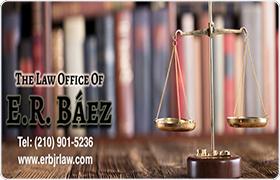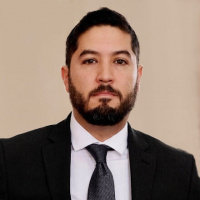Wilson County, TX White Collar Crime Lawyers
Sponsored Law Firm
-
 x
x

Click For More Info:
-
The Law Office of E.R. Báez
700 N. Saint Mary's Street Suite 1400 San Antonio, TX 78205» view mapCriminal Defense Law The Pastor Lawyer
Every client is special to us and every client will be treated with respect and dignity. No matter how difficult the case may be, Mr. Báez will treat you with the upmost dignity.
800-903-7181
Not enough matches for Wilson White Collar Crime lawyer.
Below are all Wilson lawyers.
Christopher D. Cavazos
Criminal, DUI-DWI
Our primary goals are to protect your rights and protect your future.
Christopher D. Cavazos is a knowledgeable Criminal Law and DWI attorney who has more than 15 years of experience. Mr. Cavazos previously worked as a c... (more)
Alan Dean Tysinger
Social Security, Workers' Compensation, Insurance, Personal Injury
Status: In Good Standing
Stephen Christopher Barrera
DUI-DWI, Car Accident, Domestic Violence & Neglect, , Criminal
Status: In Good Standing Licensed: 19 Years
Andres Cedillos
Juvenile Law, Traffic, Estate, Divorce & Family Law, Criminal
Status: In Good Standing Licensed: 32 Years
Oscar Dominic Carvajal
Commercial Real Estate, Real Estate, Wills, Estate
Status: In Good Standing Licensed: 32 Years
Theresa Diann Meraz
Commercial Real Estate, Oil & Gas, Wills, Family Law
Status: In Good Standing Licensed: 12 Years
Krysta Ann Baring
Commercial Real Estate, Oil & Gas, Wills, Family Law
Status: In Good Standing Licensed: 15 Years
 E.R. Báez San Antonio, TX
E.R. Báez San Antonio, TX Practice AreasExpertise
Practice AreasExpertise

